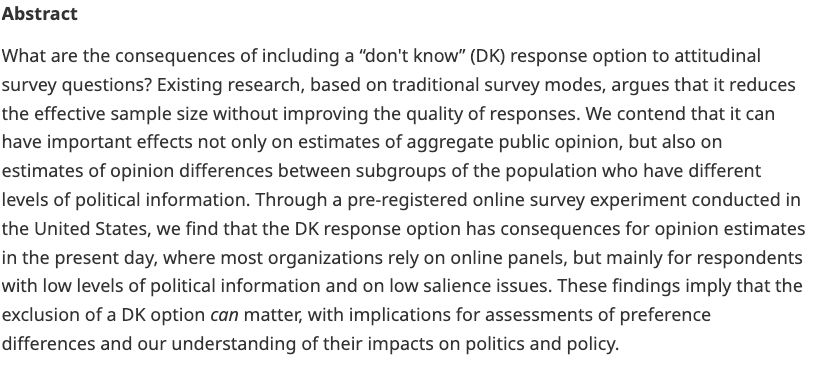Posts
Media
Videos
Starter Packs
Reposted by Mads Andreas Elkjær
Mads Andreas Elkjær
@madselk.bsky.social
· Aug 26
Mads Andreas Elkjær
@madselk.bsky.social
· Aug 26
Mads Andreas Elkjær
@madselk.bsky.social
· Aug 26
Mads Andreas Elkjær
@madselk.bsky.social
· Aug 26
Mads Andreas Elkjær
@madselk.bsky.social
· Aug 26
Mads Andreas Elkjær
@madselk.bsky.social
· Aug 26
Mads Andreas Elkjær
@madselk.bsky.social
· Aug 26
Mads Andreas Elkjær
@madselk.bsky.social
· Aug 26
Mads Andreas Elkjær
@madselk.bsky.social
· Jul 17
Estimating public opinion from surveys: the impact of including a “don't know” response option in policy preference questions | Political Science Research and Methods | Cambridge Core
Estimating public opinion from surveys: the impact of including a “don't know” response option in policy preference questions - Volume 13 Issue 3
www.cambridge.org
Reposted by Mads Andreas Elkjær







